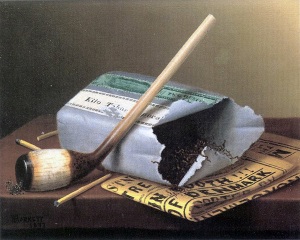“Squall” opens and closes with the narrator’s memories of his father. Why did you choose to bookend the story in that way?
I wanted to frame this brief glimpse of a man’s life with his essential conflict: feeling excluded from his own life. This is a man who suspects his bad luck is inevitable. I chose the memory of his father’s toes because physical attributes passed from parent to child are tangible evidence that parts of us are predestined. Perhaps he uses this memory to release himself from some responsibility. He can surrender to nature and let it decide his fate.
The imagery of the parasailing is very vivid, almost enough to make the reader feel seasick. Have you parasailed, or was it all in your imagination? Why choose this particular sport for your narrator?
This Taurus prefers her hooves on terra firma! I’ve never parasailed, and now that I’ve imagined every detail of the very worst outcome it’s unlikely I ever will. The idea for this story came to me as I sat on a Bahamian beach during a break from a difficult year. As I watched one body after another sail up into and across the sky, I imagined a man alone, similarly depressed, perhaps hoping to prove something to an ex or himself. Of course, tethered to a boat, the risk of parasailing is tempered. It’s false bravery. When some of my otherwise careful, conforming suburban neighbors go skydiving, I puzzle over their motivation. It’s manufactured danger. I wonder, Is flirting with death really about wanting to feel fully alive? Or could it be the only socially acceptable way to express a subconscious death wish? The “lives of quiet desperation” that Thoreau described becoming, at last, unbearable.
“The roiling ocean smacks its lips”—as the story progresses, the figurative language becomes more powerful. Did you set out to move the story from literal to figurative, or was this a natural consequence of the direction it took?
It developed naturally once the character was removed from a setting shared with other people, however peripherally. I imagined there could be only truth in a state of pure solitude, five hundred feet in the sky. When the rope snaps, he is suddenly and finally detached from civilization. The ocean below represents everything he can’t understand or control. In his final moments, he surrenders to it. There is some relief.
Your narrator is a “Texas boy.” How did his landlocked childhood relate to his final moments in your mind? And how do you feel about the ocean, both as a writer and a half-Manx Yankee liberal?
The ocean is nothing like the dry landscape this character knows. A failure on land, perhaps the sea will finally release him from misery. In the end, he gives himself over to the unknown. Reckless trust can be liberating.
I have a connection to the ocean that I do believe comes from a place deeper than my own experience. Perhaps my response to tidal rhythms was sent down through generations of Manx ancestors on my mother’s side. On an island, the ocean is never out of mind. For many it’s their livelihood; for others, passage to a new life. Storms toss shipwrecks ashore, a reminder that nature has the last word. Growing up in Connecticut, I counted on the coastline’s salty air. I counted on the blue horizon, a hint of everything else out there, while tides kept me grounded. We should treat the natural world with more respect. It will have the last word.
For a while you owned a tiny used bookstore in New York’s Hudson Valley—care to share some stories of the crazy things people in bookstores ask for and buy?
Sadly, as any used bookstore knows, what customers ask for most often is cash in exchange for their own books. It’s a challenge, ensuring the balance remains in the store’s favor (I’ll note I went out of business eleven years ago.) I did have a fantastically interesting and diverse clientele. My regulars were after essays by former Black Panthers, obscure texts on Hudson Valley military history, and pulp mysteries collected solely for their cover art. One particular out-of-print children’s book was in high demand: Green Eyes by Abe Birnbaum, published 1953. I still have a copy of the reprint. It reminds me of how thrilling it was to hunt down other people’s beloved, long-lost memories. Books can mean everything.



 The core workshop of SmokeLong Fitness is all in writing, so you can take part from anywhere at anytime. We are excited about creating a supportive, consistent and structured environment for flash writers to work on their craft in a community. We are thrilled and proud to say that our workshop participants have won, placed, or been listed in every major flash competition. Community works.
The core workshop of SmokeLong Fitness is all in writing, so you can take part from anywhere at anytime. We are excited about creating a supportive, consistent and structured environment for flash writers to work on their craft in a community. We are thrilled and proud to say that our workshop participants have won, placed, or been listed in every major flash competition. Community works.